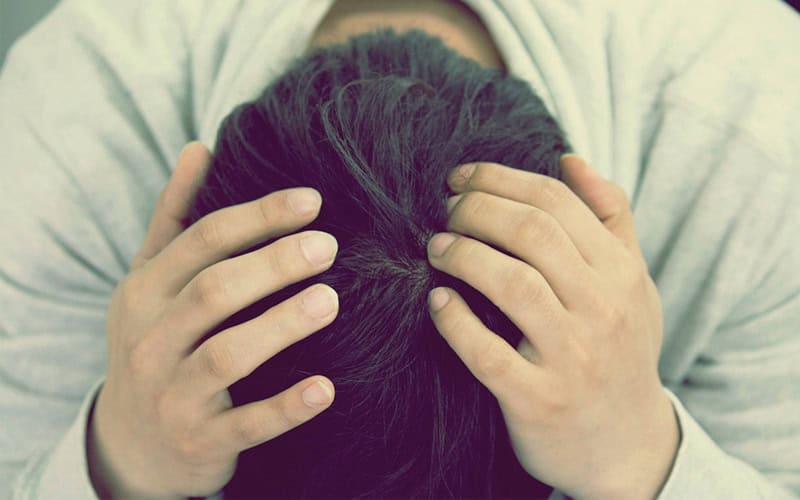Singapore: Schoolchildren are paying a heavy price for Singapore’s success in global education rankings, with rising numbers seeking psychiatric help as they struggle to cope with the relentless pressure for academic excellence.
Children are reporting symptoms of anxiety and stress related to school as early as primary school, experts warn, and there have been extreme cases where pupils have been driven to suicide.
Youths often face long days at school, hours of homework, and are then pushed by parents to have private tuition, which is having an impact on mental wellbeing — a recent report found that overall the city’s pupils reported higher levels of anxiety than average.
Now, in a bid to reduce stress in its schools, Singapore is embarking on reforms that will scrap some academic tests and change the rigid streaming process.
“We have to balance the joy of learning and the rigour of education,” Education Minister Ong Ye Kung said as he announced some of the changes in parliament earlier this year.
The move comes at a time when more authorities in Asia are being forced to assess if pupils are being overwhelmed by pressure to perform — Hong Kong’s Child Fatality Review listed problems with schoolwork among one of the key reasons for teen suicide.
Japan reported it’s highest youth suicide rate in 30 years in 2016/17, with officials admitting there is an annual spike on September 1 — the start of the new school year.
Singapore has placed education at the heart of its development since independence in the 1960s and now tops the PISA international rankings — a system dubbed the world cup of education — for maths, reading, and science.
But a study by the Organisation for Economic Cooperation and Development (OECD), which conducts the PISA assessment, found that despite academic success Singapore’s students reported higher levels of anxiety about schoolwork than other nations.
– Too much, too young –
Primary school children are required to take a leaving exam, regarded by parents and teachers as crucial because success often means access to prestigious schools and top sets.
“Children are being forced to mature too fast without the relevant foundation and reasoning power to reassure oneself,” said the psychologist Daniel Koh from Insights Mind Centre.
“Society does not want to allow the luxury of taking it slow,” he added.
The youngest person he had treated for school-related stress was a first year primary school student who was struggling with the transition from kindergarten, Koh explained.
Under such heavy pressure, private, after-school tuition has become the norm. Singaporean students rank third globally on time spent on homework, at 9.4 hours a week, according to an OECD survey.
As major exams approach, suicide prevention group the Samaritans of Singapore typically sees a rise in students contacting them, according to senior assistant director Wong Lai Chun.
In 2016, an 11-year-old boy jumped to his death on the day he was supposed to reveal his mid-year exam results to his parents. He had failed two subjects.
“Over the past few years, based on my clinical experience, I have seen more teenagers who are from top schools and report experiencing school-related stress,” explained Lim Choon Guan of Singapore’s Institute of Mental Health.
But he said this may be due to a greater willingness to report problems and that school counsellors are more aware of such issues and refer them.
Lim added that while school-related anxiety occurs year round, stress “can intensify nearer the exam periods”.
– Pushy parents –
Authorities hope the reforms can go some way to ease the pressure.
Measures include axing some exams in both primary and secondary school, and only grouping students according to ability in more academic subjects such as maths and science — rather than separating them into streams for all subjects.
Students will be taught together for classes such as art, music and physical education.
“The reform recognises some of the detrimental cultural and emotional effects that streaming has had on some students,” said education expert Jason Tan, from Singapore’s National Institute of Education.
But one of the biggest hurdles to easing expectations may be tackling parents’ attitudes.
For Wendy, who only gave one name, sending her 12-year-old daughter for private tuition in addition to her schoolwork is the only way to ensure success.
The child takes one-hour lessons in maths and science from a tutor who comes to their house twice weekly, and goes to a tuition centre for English and Chinese three times a week.
“I have to watch her — I really have to make sure that she does her revision,” fretted Wendy.
The education ministry’s divisional director of planning, Cindy Khoo, said schools have been “actively engaging parents to explain how the changes will benefit their children in the long run”.
But she conceded that pushing one’s children to do well was “deeply rooted” in Singapore culture.
[source_without_link]Agence France-Presse[/source_without_link]

